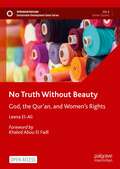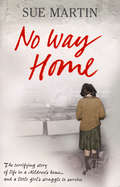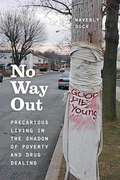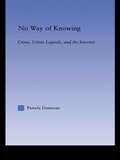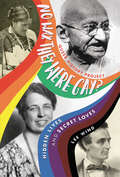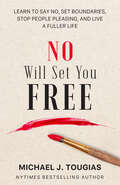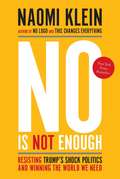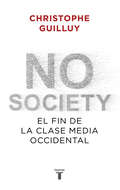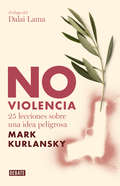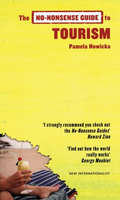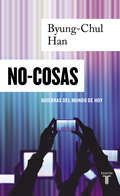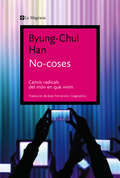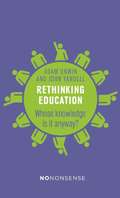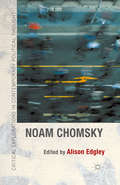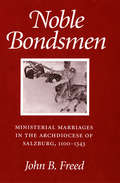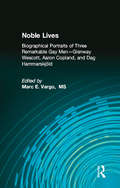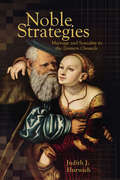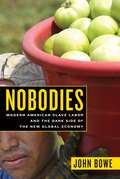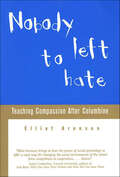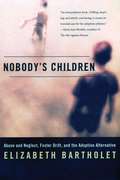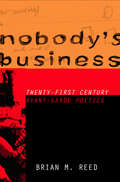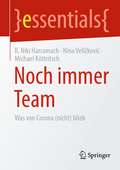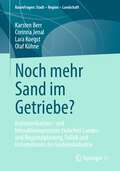- Table View
- List View
No Truth Without Beauty: God, the Qur’an, and Women's Rights (Sustainable Development Goals Series)
by Leena El-AliIn this comprehensive open access book, written for readers from any or no religious background, Leena El-Ali does something remarkable. Never before has anyone taken on every last claim relating to Islam and women and countered it not just with Qur’anic evidence to the contrary, but with easy-to-use tools available to all. How can a woman’s testimony be worth half of a man’s? How can men divorce their wives unilaterally by uttering three words? And what’s with the obsession with virgins in Paradise? Find the chapter on any of the seventeen topics in this book, and you will quickly learn a) where the myth came from and b) how to bust it. The methodology pursued is simple. First, the Qur’an is given priority over all other literary or “scriptural” sources. Second, the meaning of its verses in the original Arabic is highlighted, in contrast to English translations and/or widespread misunderstanding or misinterpretation.
No Way Home: The terrifying story of life in a children's home and a little girl's struggle to survive
by Sue MartinSue Martin was not three years old when she began life at her first children's home: a home that could at best be described as cold and regimented; at worst, torturous and terrifying. When her mother abandoned her to the protection of the home, Sue was soon to discover that behind the welcoming doors of this reputedly kind-hearted organisation lay a world steeped in lies, cover-ups, victimisation and abuse. At its heart was Boagey, whose perverse bullying was targeted at Sue. Her attacks quickly progressed from the gratuitous punishment of an innocent child to sordid gratification of her sexual whims.Sue's story is one of institutional abuse - of physical, mental and emotional torture of the most appalling kind - but it also a story full of joy, humour and many victories - small and large - against her abusers.Utterly compelling and shockingly revelatory, No Way Home will astound, move and inspire.
No Way Out: Precarious Living in the Shadow of Poverty and Drug Dealing
by Waverly DuckIn 2005 Waverly Duck was called to a town he calls Bristol Hill to serve as an expert witness in the sentencing of drug dealer Jonathan Wilson. Convicted as an accessory to the murder of a federal witness and that of a fellow drug dealer, Jonathan faced the death penalty, and Duck was there to provide evidence that the environment in which Jonathan had grown up mitigated the seriousness of his alleged crimes. Duck's exploration led him to Jonathan's church, his elementary, middle, and high schools, the juvenile facility where he had previously been incarcerated, his family and friends, other drug dealers, and residents who knew him or knew of him. After extensive ethnographic observations, Duck found himself seriously troubled and uncertain: Are Jonathan and others like him a danger to society? Or is it the converse--is society a danger to them? Duck's short stay in Bristol Hill quickly transformed into a long-term study--one that forms the core of No Way Out. This landmark book challenges the common misconception of urban ghettoes as chaotic places where drug dealing, street crime, and random violence make daily life dangerous for their residents. Through close observations of daily life in these neighborhoods, Duck shows how the prevailing social order ensures that residents can go about their lives in relative safety, despite the risks that are embedded in living amid the drug trade. In a neighborhood plagued by failing schools, chronic unemployment, punitive law enforcement, and high rates of incarceration, residents are knit together by long-term ties of kinship and friendship, and they base their actions on a profound sense of community fairness and accountability. Duck presents powerful case studies of individuals whose difficulties flow not from their values, or a lack thereof, but rather from the multiple obstacles they encounter on a daily basis. No Way Out explores how ordinary people make sense of their lives within severe constraints and how they choose among unrewarding prospects, rather than freely acting upon their own values. What emerges is an important and revelatory new perspective on the culture of the urban poor.
No Way of Knowing: Crime, Urban Legends and the Internet (Studies in American Popular History and Culture)
by Pamela DonovanExamining "old media" treatment of crime legends: news reports, fictional film and television depictions, and "new media" interactive discussions: versions and discussions circulating in Internet newsgroups and via electronic mail lists, this text examines a social context vastly changed from the height of rumour research in the mid-20th century.
No Way, They Were Gay?: Hidden Lives and Secret Loves (Queer History Project)
by Lee Wind"History" sounds really official. Like it's all fact. Like it's definitely what happened. But that's not necessarily true. History was crafted by the people who recorded it. And sometimes, those historians were biased against, didn't see, or couldn't even imagine anyone different from themselves. That means that history has often left out the stories of LGBTQIA+ people: men who loved men, women who loved women, people who loved without regard to gender, and people who lived outside gender boundaries. Historians have even censored the lives and loves of some of the world's most famous people, from William Shakespeare and Pharaoh Hatshepsut to Cary Grant and Eleanor Roosevelt. Join author Lee Wind for this fascinating journey through primary sources—poetry, memoir, news clippings, and images of ancient artwork—to explore the hidden (and often surprising) Queer lives and loves of two dozen historical figures.
No Will Set You Free: Learn to Say No, Set Boundaries, Stop People Pleasing, and Live a Fuller Life
by Michael TougiasBreak Free and Learn To Say NoWe’ve all been taught to seize the moment and say yes without considering the downside. No Will Set You Free empowers you to take back your life and control your own time again.Be happy to just say “Hell No!”. No, thank you. Maybe some other time. “No” can come in many shapes and sizes, yet saying it can be difficult. We may think it’s selfish but this simple word is necessary to thrive in life. This informative, self-help-style, learn to say no book helps you discover and follow your true desires, find more time to invest in those you love, and pursue your real interests.Learn to say “No” finally. Saying no can be hard. Really hard. Author Michael J. Tougias understands. As a former people-pleaser himself, Michael wields a combination of research, personal stories, and proven methods to help us understand our actions and stop saying yes. Through his witty rapport detailing his own setbacks and triumphs, we learn how to stop people-pleasing and how to, ultimately, honor our authentic selves.Inside No Will Set You Free, you’ll Find:Studies that help us understand our urge to say yes and how to learn to say noPersonal stories and anecdotes about the journey to “No”, how it relieves stress, and leads to a more productive lifeSteps, tips, and tricks to control your life through the power of NoIf you liked Boundaries; The Art of Saying NO; or Set Boundaries, Find Peace; you’ll love No Will Set You Free.
No is Not Enough: Resisting Trump's Shock Politics and Winning the World We Need
by Naomi Klein<P> Donald Trump's takeover of the White House is a dangerous escalation in a world of cascading crises. His reckless agenda--including a corporate coup in government, aggressive scapegoating and warmongering, and sweeping aside climate science to set off a fossil fuel frenzy--will generate waves of disasters and shocks to the economy, national security, and the environment. <P> Acclaimed journalist, activist, and bestselling author Naomi Klein has spent two decades studying political shocks, climate change, and "brand bullies. " From this unique perspective, she argues that Trump is not an aberration but a logical extension of the worst, most dangerous trends of the past half-century--the very conditions that have unleashed a rising tide of white nationalism the world over. It is not enough, she tells us, to merely resist, to say "no. " Our historical moment demands more: a credible and inspiring "yes," a roadmap to reclaiming the populist ground from those who would divide us--one that sets a bold course for winning the fair and caring world we want and need. <P>This timely, urgent book from one of our most influential thinkers offers a bracing positive shock of its own, helping us understand just how we got here, and how we can, collectively, come together and heal. Naomi Klein is an award-winning journalist, syndicated columnist, and author of the international bestsellers No Logo, The Shock Doctrine, and most recently This Changes Everything: Capitalism vs. the Climate. In 2017 she joined The Intercept as Senior Correspondent. <P><b>A New York Times Bestseller</b>
No society: El fin de la clase media occidental
by Christophe GuilluyEl polémico ensayo que ha irrumpido con fuerza en el debate internacional. «There is no society», dijo Margaret Thatcher en 1987. El mensaje caló en las clases dominantes occidentales y se ha producido una secesión de la gente de arriba -que, abandonando el bien común, sumerge los países occidentales en el caos- y la más desfavorecida. Como resultado, se descompone la sociedad. Crisis de la representación política, atomización de los movimientos sociales y gentrificación de las ciudades son algunos de los signos del agotamiento de un modelo que ya no construye sociedades. La ola populista que atraviesa el mundo occidental no es más que la parte visible de un soft power ejercido por las clases populares que obligará al mundo de los de arriba o bien a unirse al movimiento real de la sociedad o bien a desaparecer. Hace algunos años Christophe Guilluy acuñó el concepto de «Francia periférica», empleado hoy de manera muy generalizada, e hizo hincapié en el peligro del desprecio por parte del mundo mediático a las clases populares, y en la importancia del descontento de estas. Con este libro amplía su reflexión a un ámbito internacional: el Brexit, la elección de Trump o Bolsonaro y el auge de Vox en España dan cuenta del carácter internacional del fenómeno. Reseñas:«Los conceptos que maneja Guilluy han fijado el marco teórico que explica muchas de las tensiones de las democracias occidentales.»Marc Bassets, El País «Este geógrafo ausculta el blues de las periferias con tanta lucidez que incluso le han acusado de malas intenciones políticas.»L'Express «Cada obra de Christophe Guilluy es un acontecimiento.»Le Figaro «Un libro que invita a pensar, pues nos obliga a reflexionar sobre la crisis política actual más allá de la simple recriminación moral.»Raphaël Glucksmann «Un libro visionario.»Franz-Olivier Giesbert, Le Point «Profético.»Elisabeth Lévy «Todo un acontecimiento.»Léa Salamé, France Inter
No violencia: 25 lecciones sobre una idea peligrosa
by Mark KurlanskyUn manifiesto necesario. Un arma pacífica para cambiar el mundo. «Es mi deseo y mi plegaria que este libro no solo llame la atención de los lectores sino que también cause un efecto profundo en ellos.» Dalai LamaEl movimiento de la no violencia ha sido considerado como una amenaza por muchos gobiernos ya que puede y debería ser una técnica para superar la injusticia social y acabar con las guerras. No se trata de una idea pasiva sino de una manera de ser, una manera de vivir, de una noción peligrosa que desafía a aquellos que tienen el poder y que demuestra que la unión de la voluntad de la gente puede hacerse con el control.Mark Kurlansky analiza la historia del mundo y a partir de grandes victorias como la de Gandhi en la India o la resistencia de Europa del Este frente a los Soviéticos, nos ofrece veinticinco lecciones útiles para el cambio. Una lectura esencial que plantea una nueva forma de pensar en la guerra y en sus consecuencias.
No-Nonsense Guide to Tourism (No-Nonsense Guides #25)
by Pamela NowickaMany people like to take a break by exploring somewhere new, whether it’s with just a backpack or with a fleet of luggage. But there is more to a holiday that visiting “attractions,” sampling local foods, and napping in a hammock. Being a tourist is easy—tourism is complex. In this No-Nonsense Guide, Pamela Nowicka explores the third largest industry in the world (after oil and narcotics) and its profound economic, social, and environmental impacts. Taking the reader on a trip from the early days of travel to the first package tours and on to today’s mass tourism, she argues that without a greater commitment to equitable and sustainable practices, tourists of all stripes will continue to be part of the problem, not the solution.
No-cosas: Quiebras del mundo de hoy
by Byung Chul HanEl nuevo libro del filósofo vivo más leído del mundo. «Hoy estamos en la transición de la era de las cosas a la era de las no-cosas. No son las cosas, sino la información, lo que determina el mundo en que vivimos.» Hoy en día, el mundo se vacía de cosas y se llena de información inquietante como voces sin cuerpo. La digitalización desmaterializa y descorporeíza el mundo. En lugar de guardar recuerdos, almacenamos inmensas cantidades de datos. Los medios digitales sustituyen así a la memoria, cuyo trabajo hacen sin violencia ni demasiado esfuerzo. La información falsea los acontecimientos. Se nutre del estímulo de la sorpresa. Pero este no dura mucho. Rápidamente sentimos la necesidad de nuevos estímulos, y nos acostumbramos a percibir la realidad como una fuente inagotable de estos. Como cazadores de información, nos volvemos ciegos ante las cosas silenciosas y discretas, incluso las habituales, las menudas y las comunes, que no nos estimulan, pero nos anclan en el ser. El nuevo ensayo de Byung-Chul Han gira en torno a las cosas y las no-cosas. Desarrolla tanto una filosofía del smartphone como una crítica a la inteligencia artificial desde una nueva perspectiva. Al mismo tiempo, recupera la magia de lo sólido y lo tangible y reflexiona sobre el silencio que se pierde en el ruido de la información.
No-coses
by Byung-Chul HanJa no habitem la terra i el cel, sinó Google Earth i el núvol.La informació domina el nostre entorn de vida, i les coses palpables passen cada cop més a un segon pla. El món com a esfera d'informació se superposa al món com a constel·lació de coses, i aquesta transició modifica substancialment la nostra percepció i relació amb el món. Byung-Chul Han analitza amb brillantor aquesta deriva, defensa la màgia de les coses i reflexiona sobre allò que es perd en el soroll de la informació. BYUNG-CHUL HAN (Seül, 1959)És un filòsof i assagista d'origen sud-coreà, professor de la Universitat de les Arts de Berlín. Escriu en alemany i és considerat com un dels filòsofs més destacats del pensament contemporani.
NoNonsense Rethinking Education: Whose knowledge is it anyway?
by Adam Unwin John YandellWhat is knowledge? Who decides what is important? Who owns it? These are central themes that run through this title that aims to change perceptions and understanding of education. Using historical and contemporary examples, the authors examine the motivations, conflicts, and contradictions in education. In breaking down the structures, forces, and technologies involved they show how alternative approaches can emerge.Dr. Adam Unwin is Senior Lecturer in Business and Economics Education at University College London's Institute of Education. John Yandell is Senior Lecturer in Education at University College London Institute of Education.
Noam Chomsky (Critical Explorations in Contemporary Political Thought)
by Alison EdgleyExploring the key debates surrounding human nature, epistemology, the nature of social knowledge, foreign policy, the Propaganda Model, the anarchist tradition and the revolutionary transformation of society, this book reveals and explains the structure and power of Chomsky's work.
Noble Bondsmen: Ministerial Marriages in the Archdiocese of Salzburg, 1100–1343
by John B. FreedFreed documents the network of marriage practices among ministerials in the archdiocese of Salzburg and in the process reconstructs an important and previously unexplored chapter in the rise of the German principalities.
Noble Lives: Biographical Portraits of Three Remarkable Gay Men—Glenway Wescott, Aaron Copland, and Dag Ham
by Marc E. VargoNoble Lives examines how sexual orientation affected the careers of two historical figures generally accepted as gay, and a third whose sexual identity was in constant question during his lifetime. This unique book features comprehensive biographical accounts of Jazz Age author Glenway Wescott, Academy Award-winning composer Aaron Copland, and Nobel Peace Laureate Dag Hammarskjöld, addressing the relationship between their sexuality and their achievements in literature, the social sciences, musical composition, diplomacy, and global politics. Noble Lives is the first English-language text to thoroughly—and objectively—explore the troubled sexuality of Sweden's Hammarskjöld, the former Secretary-General of the United Nations.
Noble Strategies: Marriage and Sexuality in the Zimmern Chronicle (Sixteenth Century Essays & Studies #75)
by Judith J. HurwichThrough the colorful family histories and rich detail of the Zimmern Chronicle, historian Judith Hurwich examines marriage, family, and sexuality among the early modern German nobility. She uses the house chronicles of the Zimmern family and the families of the counts and barons with whom they intermarried to investigate marriage and nonmarital sexuality in the southwest German nobility in the late fifteenth and the sixteenth centuries. Along with a deeper look at women’s roles as wives, mothers, and concubines, Noble Strategies shines a light on the intimate lives of the early modern German elite.
Noble Strategies: Marriage and Sexuality in the Zimmern Chronicle (Sixteenth Century Essays & Studies #75)
by Judith J. HurwichThrough the colorful family histories and rich detail of the Zimmern Chronicle, historian Judith Hurwich examines marriage, family, and sexuality among the early modern German nobility. She uses the house chronicles of the Zimmern family and the families of the counts and barons with whom they intermarried to investigate marriage and nonmarital sexuality in the southwest German nobility in the late fifteenth and the sixteenth centuries. Along with a deeper look at women’s roles as wives, mothers, and concubines, Noble Strategies shines a light on the intimate lives of the early modern German elite.
Nobodies: Modern American Slave Labor and the Dark Side of the New Global Economy
by John BoweAward-winning journalist Bowe exposes the outsourcing, corporate chicanery, immigration fraud, and sleights of hand that allow forced labor to continue in the United States while the rest of the American public notice nothing but the everyday low price at the checkout counter.
Nobody Left to Hate: Teaching Compassion After Columbine
by Elliot Aronson“Aronson brings to bear the power of social psychology to help us understand why a negative school environment can push vulnerable kids over the edge.” —James Garbarino, PhD, author of Lost BoysOn April 20, 1999, the halls of Columbine High School in Littleton, Colorado, reverberated with the sound of gunshots as two students, highly armed and consumed with rage, killed thirteen students and seriously injured twenty-three before turning the guns on themselves. It was the worst school massacre in our nation’s history. Can we prevent a tragedy like this from happening again?In Elliot Aronson’s Nobody Left to Hate, one of our nation’s leading social psychologists argues that the negative atmosphere in our schools—the exclusion, taunting, humiliation, and bullying—played a major role in triggering the pathological behavior of the shooters. At the very least, such an atmosphere makes schools an unpleasant experience for most normal students.But it doesn’t have to be. Nobody Left to Hate offers concise, practical, and easy-to-apply strategies for creating a more supportive, stimulating, and compassionate environment in our schools. Based on decades of scientific research and classroom testing, these strategies explain how students can be taught to control their own impulses, how to respect others, and how to resolve conflicts amicably. In addition, they show teachers how to structure classes to promote cooperation, rather than competition, without sacrificing academics. On the contrary, education is greatly enhanced.For parents, teachers, or anyone concerned with what is happening in our schools, Nobody Left to Hate provides a simple and effective plan of action that will make their children’s school not only a safe place, but a more humane place of learning.
Nobody's Children: Abuse and Neglect, Foster Drift, and the Adoption Alternative
by Elizabeth BartholetThe book presents an intense look at child welfare policies on abuse and neglect. It argues that the current system of adoption in the United States is not in the best interest of the children.
Nobody’s Business: Twenty-First Century Avant-Garde Poetics
by Brian M. ReedSince the turn of the new millennium English-language verse has entered a new historical phase, but explanations vary as to what has actually happened and why. What might constitute a viable avant-garde poetics in the aftermath of such momentous developments as 9/11, globalization, and the financial crisis? Much of this discussion has taken place in ephemeral venues such as blogs, e-zines, public lectures, and conferences. Nobody's Business is the first book to treat the emergence of Flarf and Conceptual Poetry in a serious way. In his engaging account, Brian M. Reed argues that these movements must be understood in relation to the proliferation of digital communications technologies and their integration into the corporate workplace.Writers such as Andrea Brady, Craig Dworkin, Kenneth Goldsmith, Danny Snelson, and Rachel Zolf specifically target for criticism the institutions, skill sets, and values that make possible the smooth functioning of a postindustrial, globalized economy. Authorship comes in for particular scrutiny: how does writing a poem differ in any meaningful way from other forms of "content providing"? While often adept at using new technologies, these writers nonetheless choose to explore anachronism, ineptitude, and error as aesthetic and political strategies. The results can appear derivative, tedious, or vulgar; they can also be stirring, compelling, and even sublime. As Reed sees it, this new generation of writers is carrying on the Duchampian practice of generating antiart that both challenges prevalent definitions or art and calls into question the legitimacy of the institutions that define it.
Noch immer Team: Was von Corona (nicht) blieb (essentials)
by Michael Köttritsch Nina Veličković R. Niki HarramachDie wichtigsten Kompetenzen für TE – Teamentwicklung, wie Teamwork, Führung, Kommunikation, Konfliktmanagement, Motivation können nach wie vor nur im Präsenzformat trainiert und entwickelt werden. Daran wird auch die Corona-Pandemie nichts geändert haben können – und auch nicht der „digital boost“, der über weite Strecken zum euphorischen Mainstream geworden ist. Verlass ist auf Praxiserfahrung statt auf graue Theorie! Sie haben die Auswahl aus etwa einhundert praxiserprobten Methoden und Instrumenten der Teamentwicklung – auch unter Bezug auf das Grundlagenwerk „Wir sind Team, Springer 2019.“ und 42 konkreten TIPPS in diesem Buch.
Noch mehr Sand im Getriebe?: Kommunikations- und Interaktionsprozesse zwischen Landes- und Regionalplanung, Politik und Unternehmen der Gesteinsindustrie (RaumFragen: Stadt – Region – Landschaft)
by Olaf Kühne Corinna Jenal Karsten Berr Lara KoegstObwohl mineralische Rohstoffe wie beispielsweise Kies, Sand, Quarz und Naturstein auf vielfältige Weise Grundlagen menschlicher Existenz ermöglichen und garantieren, haben Vorhaben zur Gewinnung mineralischer Rohstoffe vielerorts mit unterschiedlichen Akzeptanzproblemen zu kämpfen. Der planerische Umgang mit Rohstoffsicherung und Rohstoffgewinnung wurde wissenschaftlich bislang hauptsächlich in Bezug auf ökologische oder fachplanerische Problemstellungen, weniger hingegen als teilsystemischer Aspekt in einem soziopolitischen Kontext betrachtet, der durch verstärkten Bürgerprotest und erneuerte Partizipations- und Demokratisierungsbestrebungen gekennzeichnet ist.
